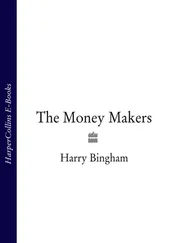‘If I want, what?’
‘Nothing. Only … where do you work?’
‘The hospital. The Third Reformed. I’m a nurse.’
‘I see. And your father works on the railway, I think you said.’
‘Yes. Why?’
‘Nothing, only I need a job.’
‘Well you can get work anywhere, can’t you? I don’t think you’d be much use as a nurse.’
‘No, but the railway appeals.’
‘Well then. Go to the railway.’ Tonya picked up an armful of logs. She stacked them in the crook of her arm, piling them until they were tucked high under her chin.
‘You’re sure I can’t help?’
‘I’ve been carrying logs all my life, comrade Malevich. For me, today wasn’t an adventure.’
‘Yes, I see.’
Misha picked up the reins of the sledge and began the slow trudge home.
He got home, weary but satisfied.
His satisfaction lasted approximately one second from the moment he threw open the door to their rooms.
His gaze fixed first on his mother, silent and white-faced – then Yevgeny, the same – then on two soldiers in the corner by the window, holding their rifles in front of them like walking sticks. A third man in a tie and a dark coat waited on the opposite wall. He had a revolver at his waist. There was total silence.
Misha broke it.
‘Good evening,’ he said.
‘Mikhail Ivanovich Malevich?’ said the man in the tie.
‘Yes.’
‘Come with us.’
‘Come? Why? Is this an arrest?’
The man didn’t bother to answer. Emma was frozen in her chair by the stove, eyes terrified, too scared even to cry. Misha saw Yevgeny, his ‘little comrade’, clutching his mother as though it was his job to comfort her.
‘I’ll be fine, Mother. This gentleman only wants to ask some questions. I’ll be home soon.’
Perhaps or perhaps not. He knew he had no way of telling. With the man in the tie leading the way, the soldiers pushed Misha out of the door, then led him downstairs into a waiting car. There were two more soldiers in the vehicle, also armed. Still no one spoke.
The car, lurching dangerously on the uncleared roads, crept through the city. It was dark now and from his position, seated in between two soldiers, Misha had a hard job working out where they were going. Lamps flashed by in the darkness. The soldiers in front muttered inaudibly between themselves. Once, they hit a patch of ice and slid sideways into a drift. Two of the men had to get out to help push the car out again, while the driver turned in his seat and stared at Misha with unreadable eyes.
After twenty-five minutes they stopped outside a large building somewhere near the centre of town. The building had two large iron lanterns burning outside and a pair of armed guards just inside the doorway. Misha thought he could see a sign reading ‘Ministry of Economic … but he didn’t have time to read the whole sign and wasn’t certain of what he’d seen anyway. He was thrust through the doorway and was marched at speed up a broad turning staircase and along wide, ringing corridors. They stopped at a door. One of the soldiers knocked once, got an answer, then shoved Misha through.
The room was around a dozen feet square, with a grey striped rug over a parquet floor. One wall was covered by a dark wooden unit, cupboards on the bottom, glass-fronted shelves above. The shelves were mostly empty, except for a few rows filled by books with titles like Report of the Commission into the Iron and Steel Industry 1912 . The only other adornments were a map of Russia and a portrait of Karl Marx.
Behind the desk sat a man, formal, neat, wire-rimmed spectacles over a beaky nose. The man wore a carefully trimmed beard and a look of mild busyness. A second man stood on the opposite side of the room by the door, so Misha couldn’t look at them both at the same time. Misha was given a low stool and told to sit.
‘Malevich? Mikhail Ivanovich Malevich?’
Misha confirmed his identity with a nod. Then it began. Questioning, intense and repetitive, constant and intrusive.
He was asked about everything. Things that mattered, things that didn’t. Things to which they must already have known the answers, things that it was impossible for anyone to have known. Misha’s time in the army. His purchases on the black market. His father’s business dealings. The conversion of Kuletsky Prospekt into workers’ accommodation. Their various small breaches of the housing decrees. His acquisition of logs that day. His contacts with other members of the old regime.
Mostly the questions were asked by the man at the desk: a functionary, not a policeman or a soldier, one of a new breed of Bolshevik bureaucrats. Whenever the man at the desk had had enough, he took a sip of water, a sign for the other man to take over for a spell. Nobody offered Misha violence, but they hardly needed to. The disparity in power in the room was so extreme that a kick or a punch would have been almost an anticlimax. The man with the wire-rimmed spectacles never raised his voice or varied the pace of his questions or took notes. But he never relented. He never gave time to pause. If Misha’s answer to a question ever varied by even a half-shade of implication, the man burrowed away at the variation until it seemed even to Misha as though he’d been caught in some barefaced lie.
Round and round the topics came.
Misha had been dealing ‘enthusiastically’ on the black market. Could he deny it? Was he not aware that there were official allocations of goods, that black-market speculation was tantamount to stealing from the workers? Misha had acquired logs in this way. He admitted it, did he not? What other items had he bought illegally? The man ticked off a list of items on the tips of his fingers as Misha made his confessions.
But through it all, Misha began to sense the man was play-acting. He couldn’t be interested in a few minor black-market dealings. Everyone in Petrograd used the black market. Misha’s strongest feeling was an odd one. He felt sure that Tonya must have betrayed him: that the housing commissar had brought her to do a job, that she’d done it, that he’d been its victim. He felt oddly, deeply wounded. He felt taken in and tricked.
The questioning turned off in another direction. Misha answered as best he could. There was something hypnotic in the rhythm of question and answer. To break the spell, Misha looked at the books on the shelves. Analysis of International Trade from the Baltic Ports 1898–1914. Prussia, Austria and Russia: An Enquiry into International Capital Transactions . The books were as dull as anything Misha could imagine, but they were also used. One or two books lay out on the desk. Others had small paper bookmarks sticking out of them. Misha guessed that he’d seen the sign right as he came in, that he was now in some kind of economics ministry. And in that case, this man, with his private room, his substantial desk, his black telephone, his air of importance, was no minor functionary. Misha guessed he was dealing with a Bolshevik official of some seniority. And in that case, there was only one possible topic of interest to him: namely, Misha’s father’s business dealings in the months before his arrest and murder.
Misha realised this and felt relief glowing through him. He knew nothing of his father’s business. He could answer truthfully and not be caught out. His answers became fuller and franker. Once, in an answer to one question he began talking about the coal mines his father had owned down in Zhavalya. The man listened to him with a thin smile for a few minutes before interrupting.
‘Your father didn’t own those mines. He sold them in October 1916.’
‘No, no, I’d have known if he’d done that,’ said Misha, sincerely.
Читать дальше












